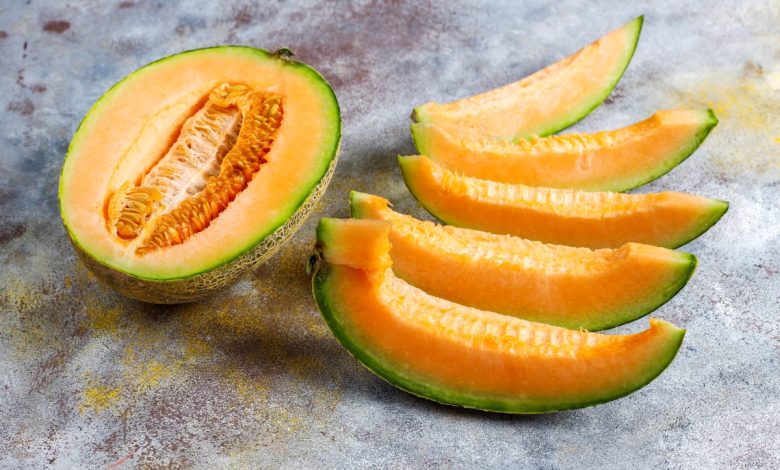The benefits of honeydew melons for the body that you will not believe

The benefits of honeydew melons: Honeydew melons are the sweetest of all melons and are typically in season from July to September.
The summer fruit is light green and soft on the inside and can have white or yellow skin on the outside, although white-skinned versions are generally sweeter. Honeydew is also related to squash and cucumbers.
Honeydew contains plenty of water, as well as vitamin C, B vitamins, fiber, antioxidants, and smaller amounts of other key nutrients.
Eating the fruit may offer several health benefits.
Stay with this section of Medicinal plants in the health and beauty section of Eternal Pen magazine.
The benefits of honeydew melons

1. Supports Hydration
The benefits of honeydew melons: One cup of diced honeydew melon provides over five ounces (oz) of water.
Consuming adequate water helps you stay hydrated and prevent dehydration.
When you become dehydrated, your body overheats, and you can experience unclear thinking, mood changes, constipation, and kidney stones. Drinking water also helps to lubricate and cushion your joints.
One study found adults who stay well-hydrated appear to be healthier, develop fewer chronic conditions, such as heart and lung disease, and live longer compared to people who may not consume enough fluids.
2. Supports Immune Function

The benefits of honeydew melons: Apart from water, the standout nutrient in honeydew is vitamin C. One cup of diced melon provides about a third of the daily requirement for this immune-supporting nutrient.
The immune system needs vitamin C to respond to pathogens like bacteria, viruses, fungi, and parasites. Vitamin C’s antioxidant abilities also protect cells from damage that increases chronic disease risk.
The body can’t store water-soluble vitamins for long periods, so a regular and adequate vitamin C intake is required to support healthy immune function.
3. May Support Blood Pressure Regulation
The benefits of honeydew melons: Honeydews are very low in sodium and high in potassium, both of which are good for managing blood pressure.
Potassium helps control blood pressure by causing your kidneys to excrete surplus sodium—a nutrient that can cause high blood pressure in excess. Potassium also eases tension in blood vessel walls, which further reduces blood pressure.
Other research shows eating more fruits and vegetables that produce nitric oxide is part of a diet that can help prevent and treat lifestyle-related diseases, including high blood pressure.
4. May Protect Against Type 2 Diabetes
The benefits of honeydew melons: Research shows eating fruits like honeydew melon may be beneficial for people with or at risk of type 2 diabetes.
A research review found consuming 200 grams (about seven ounces) of fruit per day is linked to diabetes prevention.
In addition, consuming up to 133 grams (about five ounces) of fresh fruit per day has been shown to decrease complications and death in people with type 2 diabetes.
Data also shows while fruits with a lower glycemic load (the amount of carbohydrates in a given portion) may be helpful for blood sugar control in those with type 2 diabetes, the glycemic index or glycemic load of individual fruits did not affect diabetes risk.
An Australian study found fruit consumption preserved insulin sensitivity, or how well insulin works to clear sugar from the blood, and was protective against type 2 diabetes.
After adjusting for other dietary and lifestyle factors, scientists concluded that compared to people with the lowest fruit intakes, those with a moderate total fruit consumption had a 36% lower risk of having type 2 diabetes after five years.
Eating fruit also changes gut microbiota, the collection of microbes that live in the gut, in ways that reduce type 2 diabetes risk.
5. May Support Digestive Health
The benefits of honeydew melons: The fluid and fiber in honeydew melon are an important combo for bowel regularity and the prevention of constipation.
Constipation is defined as having fewer than three bowel movements per week; stools that are hard, dry, or lumpy; stools that are difficult or painful to pass; or a feeling that not all stool has passed.
Common remedies for constipation include eating more fiber and consuming plenty of water; honeydew provides some of both.








